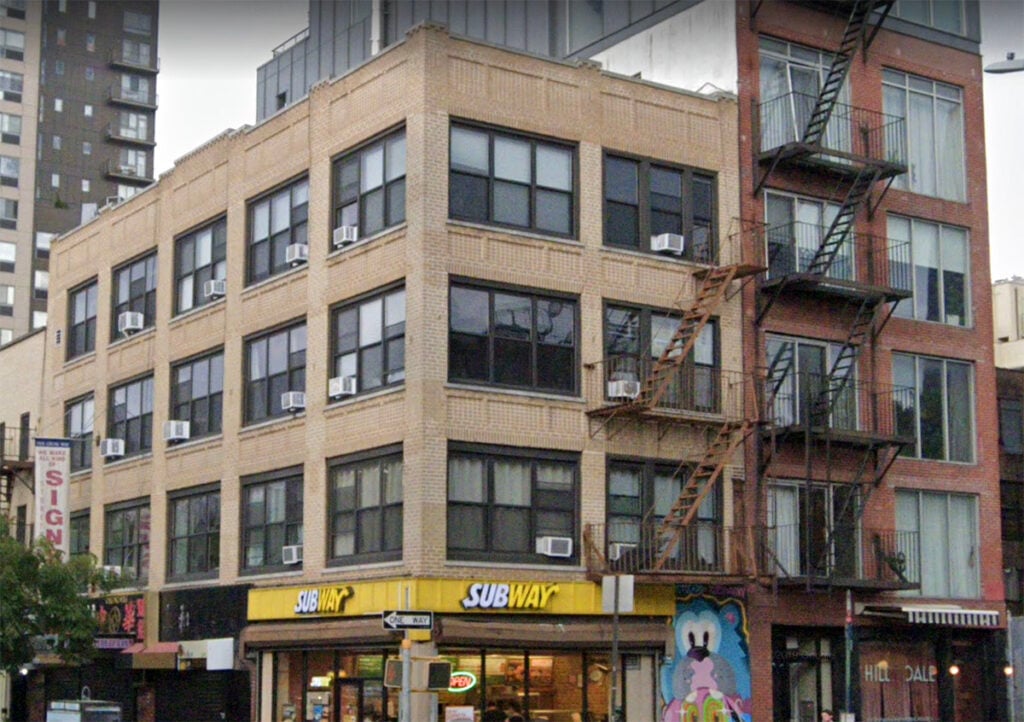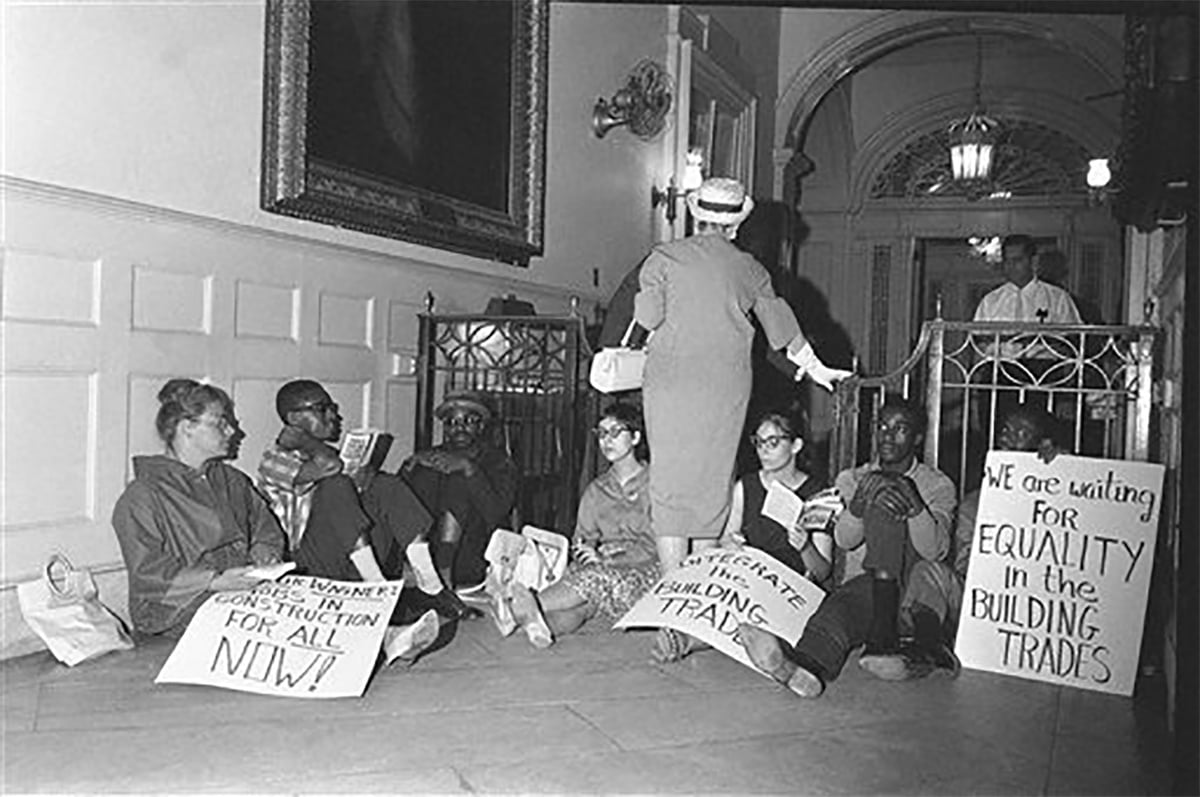The actions of the Civil Rights movement are most often associated with the South, but the legacy of Dr. Martin Luther King and the fight for Black Americans’ safety, freedom, and prosperity stretches from the streets of Birmingham to the streets of the Lower East Side.
This building, 64-66 Delancey Street, stands one block from the Tenement Museum’s buildings on the Lower East Side. A four-story tan brick building, it served as the headquarters for the downtown branch of CORE, the Congress of Racial Equality, from 1963-1966.
From these offices of Downtown CORE, Black and white New Yorkers planned sit-ins, organized fundraisers for New York and the South, and wrote reports. Across Lower Manhattan, they staged demonstrations, carried signs in the streets, and made speeches calling for attention to racial justice and poverty. The members of CORE fought for themselves and for others, dedicating time and energy to rooting out racial injustice on the Lower East Side that echoed the injustices in communities of color across the country.

